British radiographers stage two-day strike over pay in England
Thousands of British radiographers working for the state-funded National Health Service (NHS) in England have staged a two-day walkout over pay and staffing as the row between medical staff and the UK government deepens.
The strike, which involved 37 NHS trusts where vital scans on patients are performed, kicked off at 08:00 a.m. local time on Tuesday.
Union members said they had refused the government's 5 percent pay increase and called for talks to reopen after other public sector workers, including junior doctors, were offered more.
The government says its offer to raise pay by 5 percent for 2023-24, combined with one-off payments totaling at least £1,655 is "reasonable" and "final".
Meanwhile, the Society of Radiographers (SoR) said worrying numbers of staff are leaving the profession and not enough is being done to recruit more workers.
“We need to draw attention to the fact that many radiography professionals are feeling burnt out by low pay and increased hours. They’re leaving the NHS, and they are not being replaced in adequate numbers," said Dean Rogers, the executive director of industrial strategy and member relations for the SoR.
The SoR said nine out of 10 NHS patients are supported by radiographers, who carry out X-rays, MRI and CT scans, ultrasounds, and breast screening, as well as radiotherapy for cancer patients, adding that one million people are on waiting lists for radiographers to take x-rays and other medical images to assist doctors in diagnosing diseases and injuries.
The NHS hospital trusts, where the walkouts have taken place, include the Royal Marsden cancer hospital in London, University College London Hospitals, Liverpool University Hospitals, Nottingham University Hospitals, University Hospitals Bristol and Weston, and Sheffield Teaching Hospitals.
SoR representatives from each NHS trust have agreed staff will provide “life and limb” emergency cover for patients during the strike.
“If the government wants to reduce NHS waiting lists and ensure that patients receive the treatment they need, when they need it, then it must urgently prioritize the recruitment and retention of radiography professionals – and that means talking to us about pay and conditions," Rogers said.
“But they are refusing to talk to us, even though our door is open. Our members deserve better. Our patients deserve better,” he complained.
The radiographers' strike came just days after the senior doctors’ two-day walkout which followed the junior doctors’ five-day walkout in their dispute over pay.
Meantime, the UK government has proposed anti-strike legislation in order to contain industrial actions across the country's key sectors, forcing medical staff to maintain a basic level of service during strike time or face dismissal.
'Militia that kills’: Milan mayor says US ICE agents not welcome at Winter Olympics
CIA-Mossad footprint turned Iran’s peaceful protests into ‘full-scale street war’: Analyst
VIDEO | Press TV's news headlines
Economic protests and subsequent terrorism in Iran
Court docs show Trump sought to deport student over pro-Palestine op-ed
Any harm to Ayatollah Khamenei a declaration of war on Shias: Lebanese cleric
Discover Iran: Hormozgan’s strategic ports powering trade, commerce and connectivity
VIDEO | Store, gym set on fire by masked rioters during recent unrest in Tehran


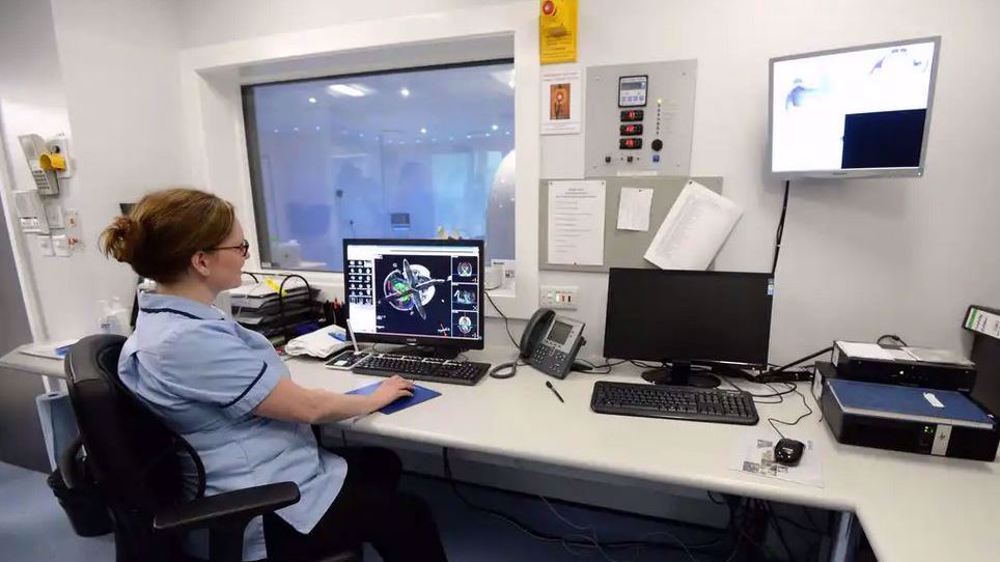
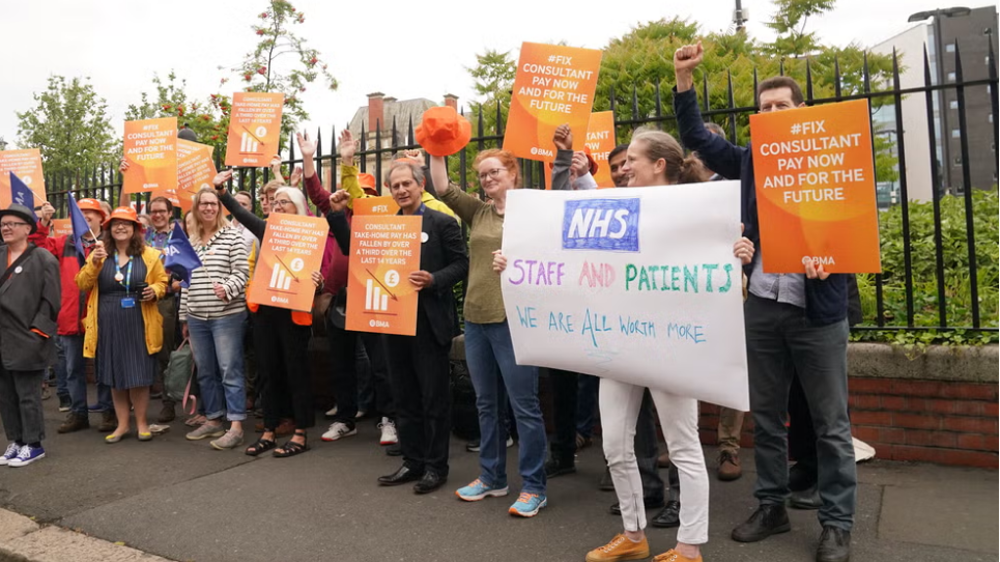
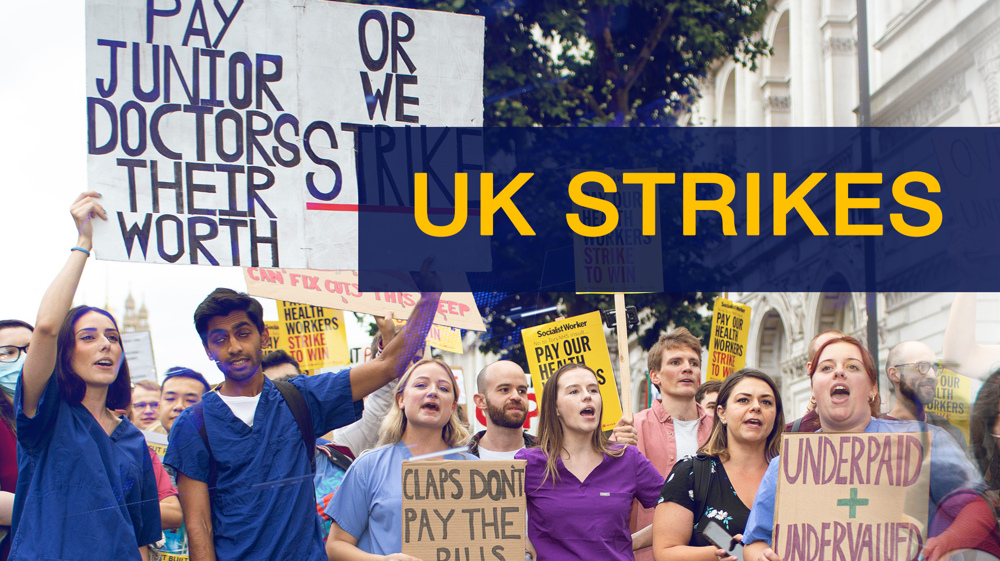
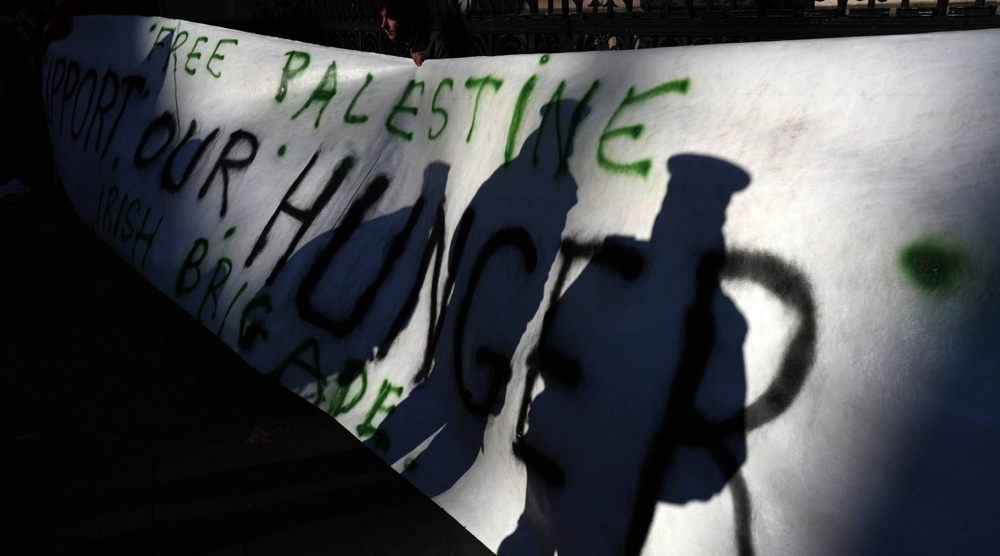
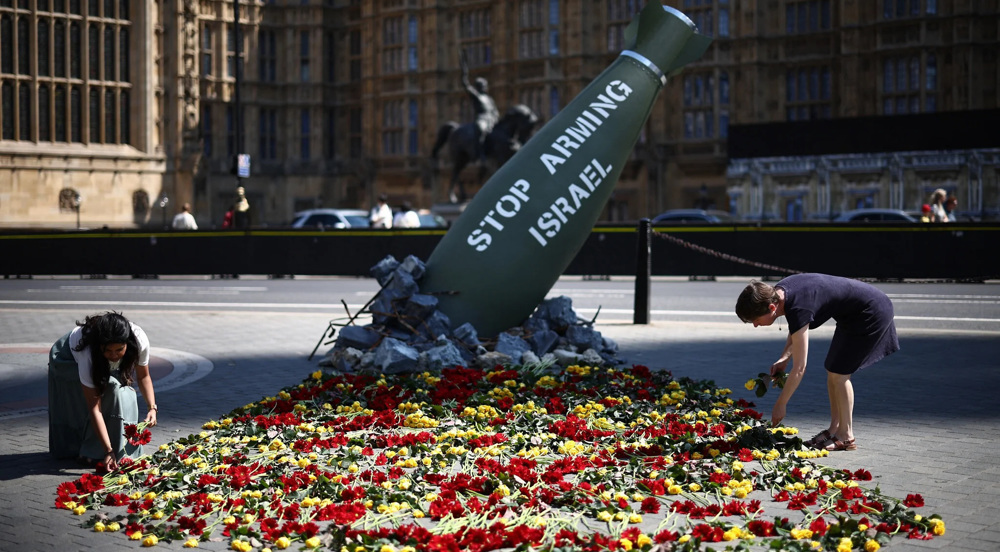
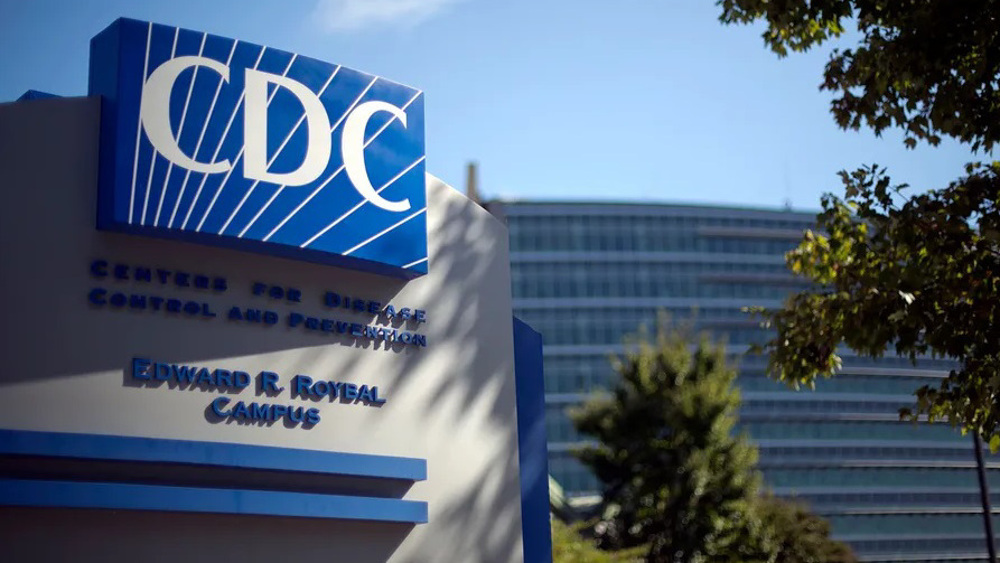



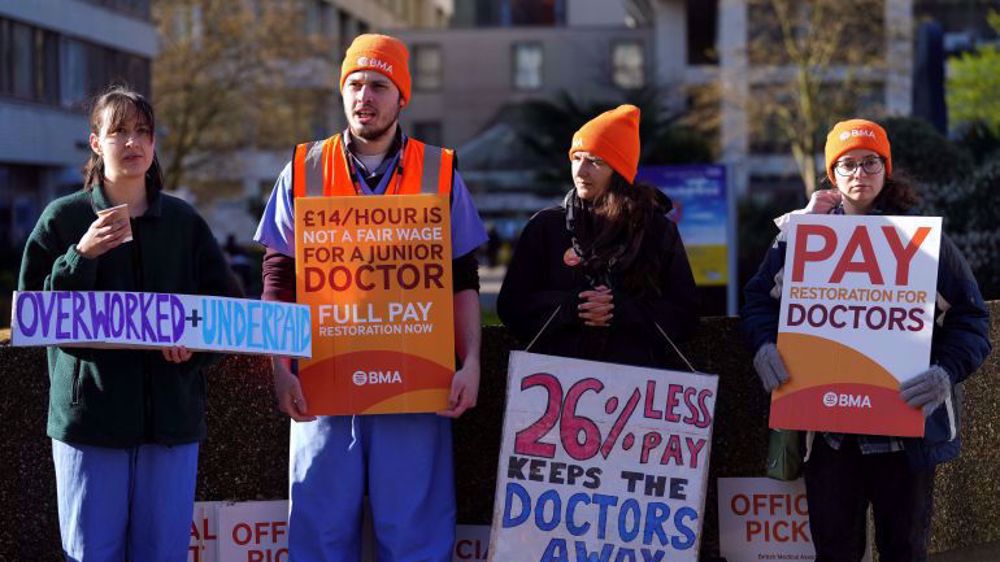
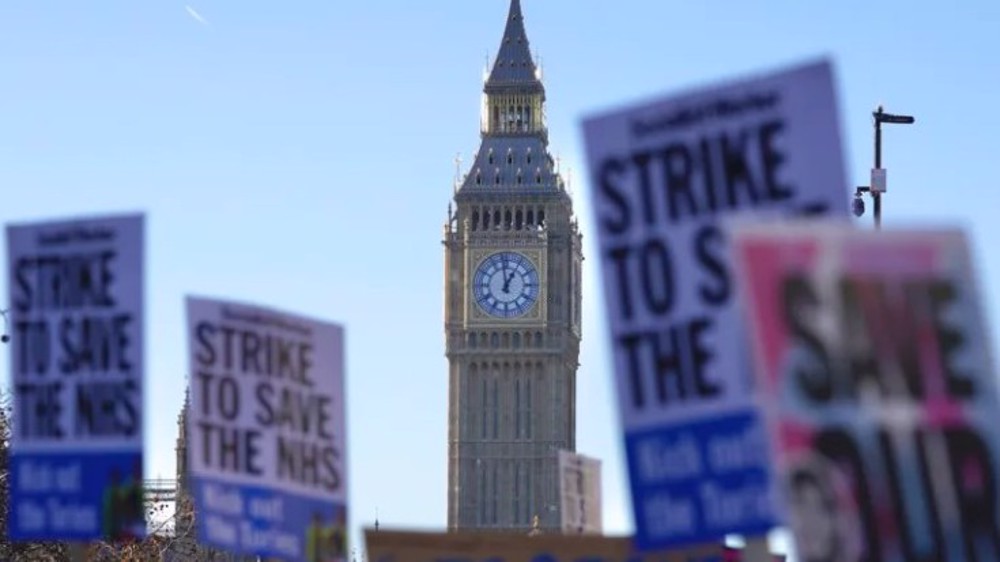
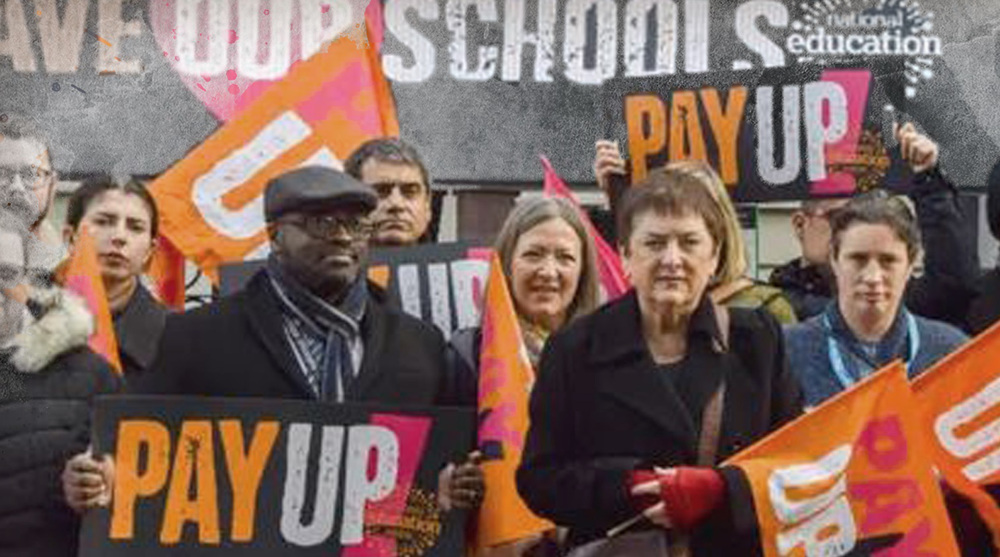
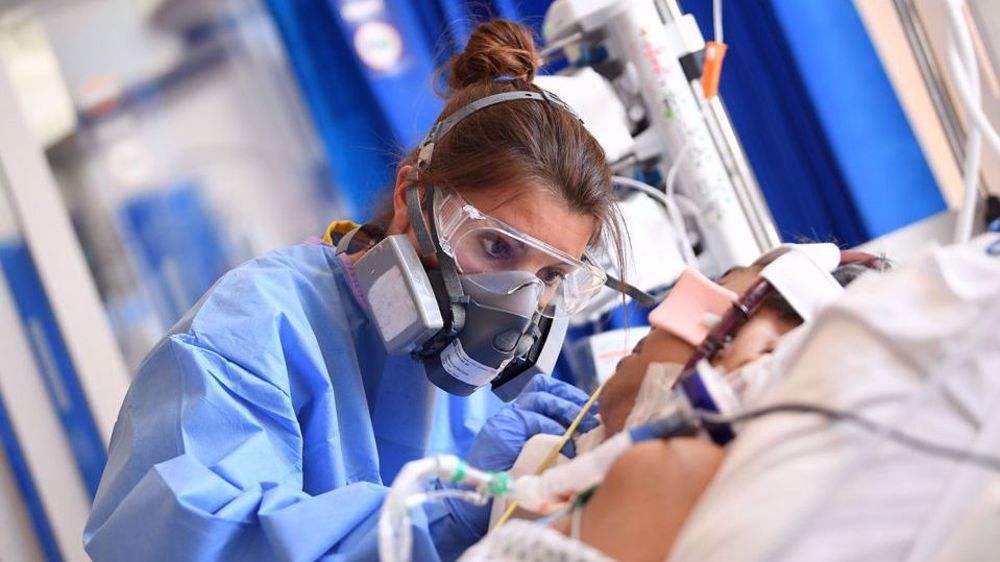

 This makes it easy to access the Press TV website
This makes it easy to access the Press TV website